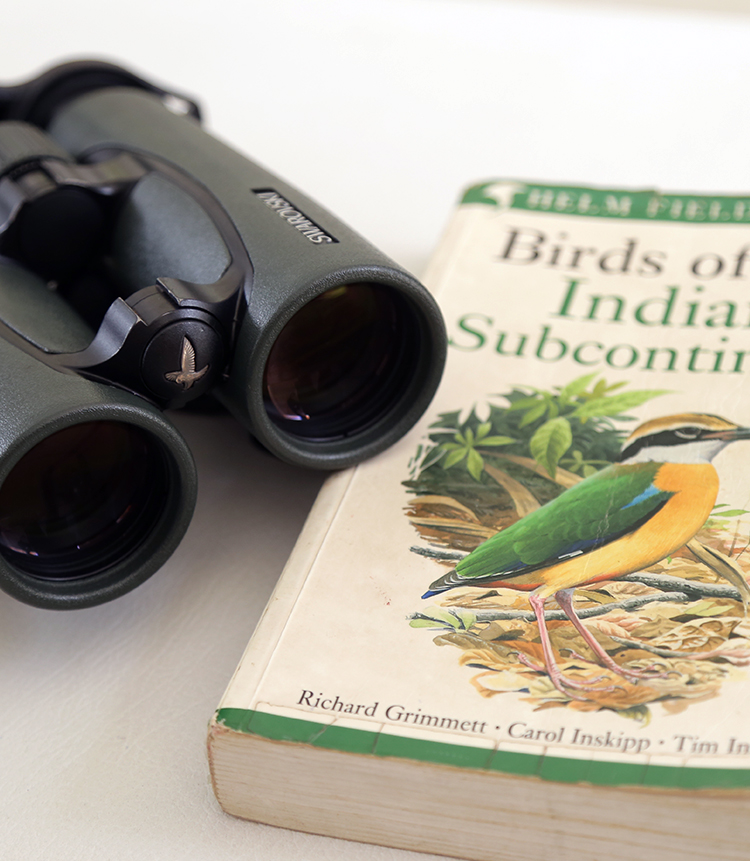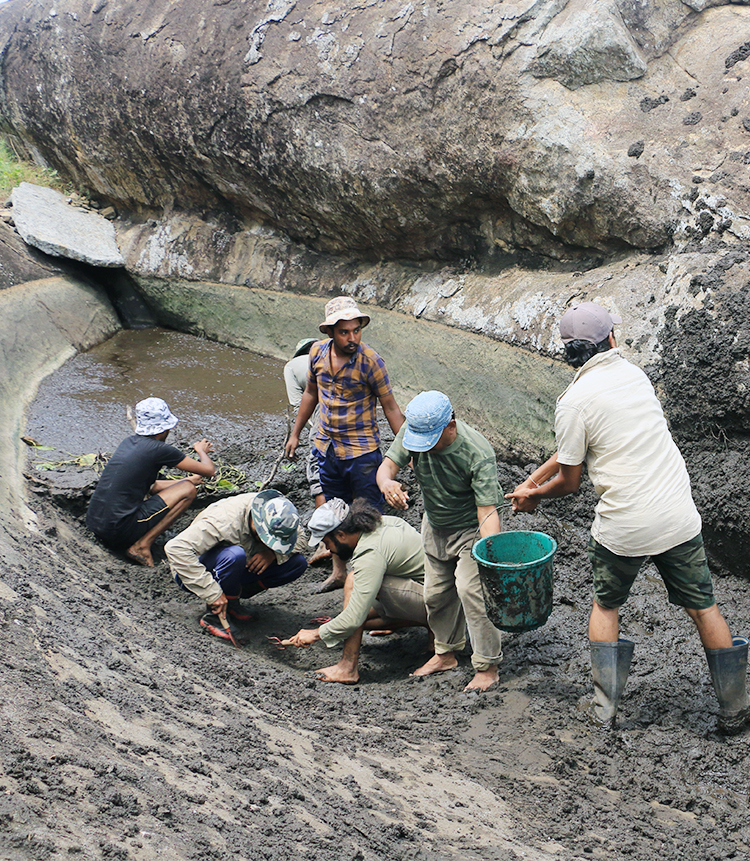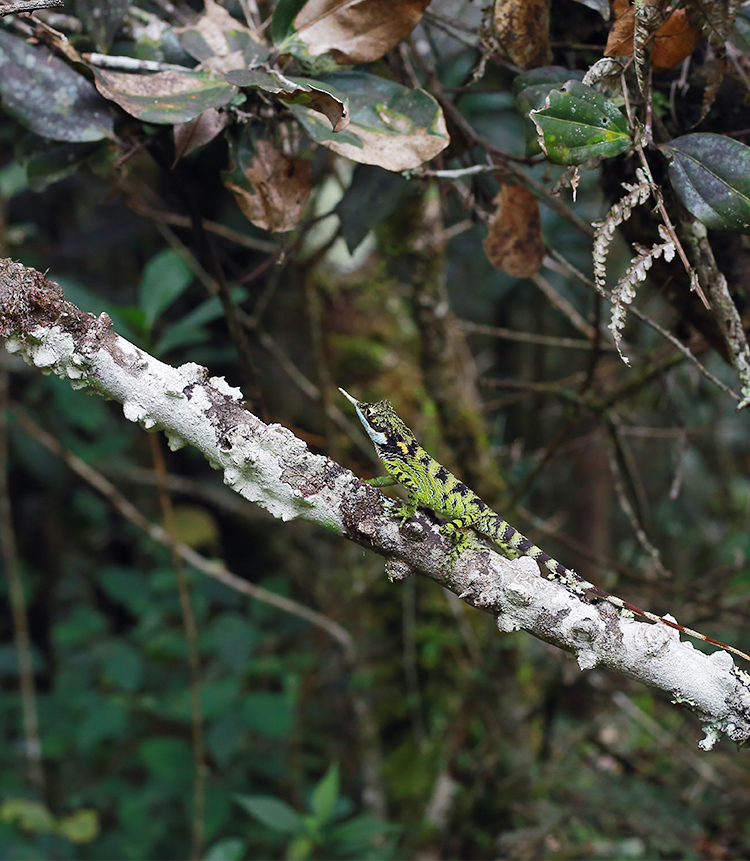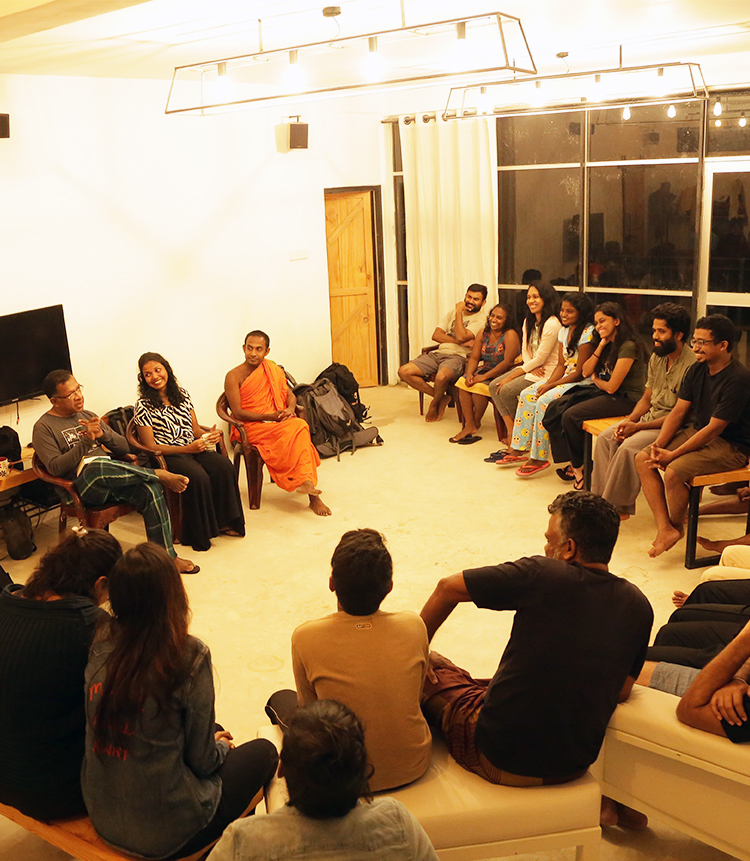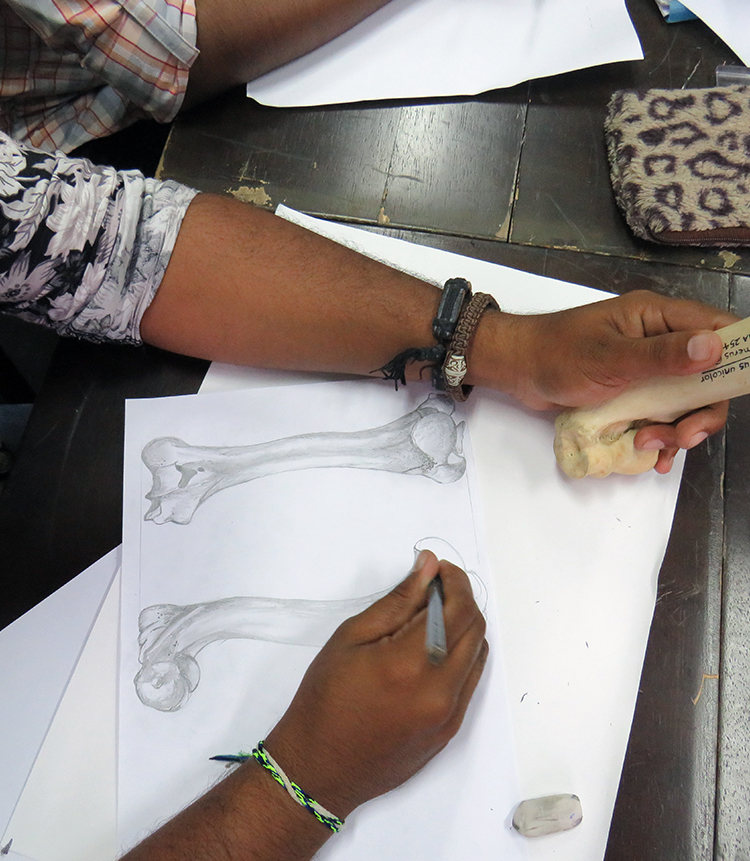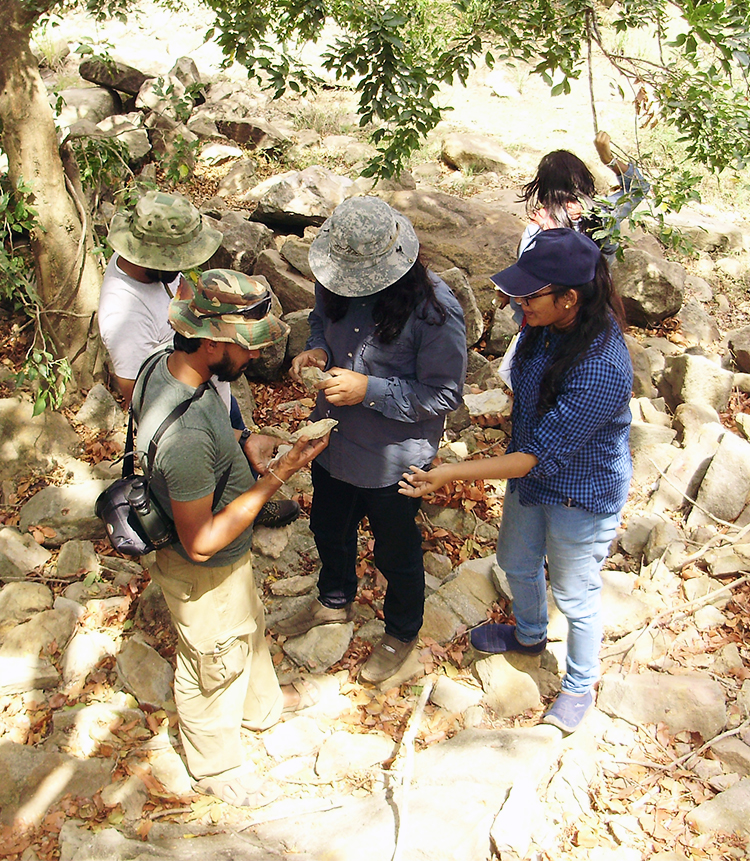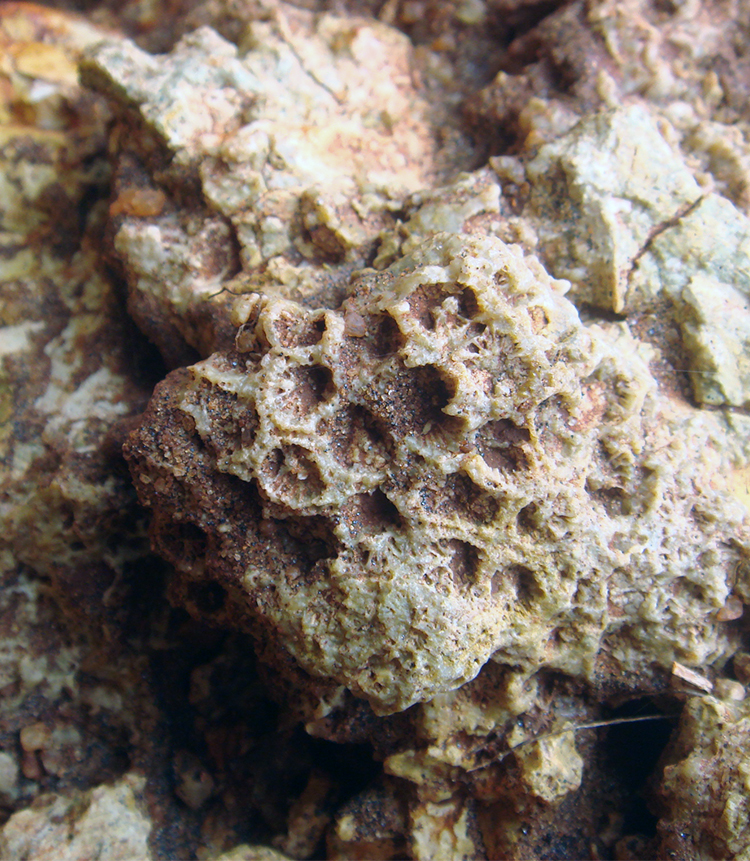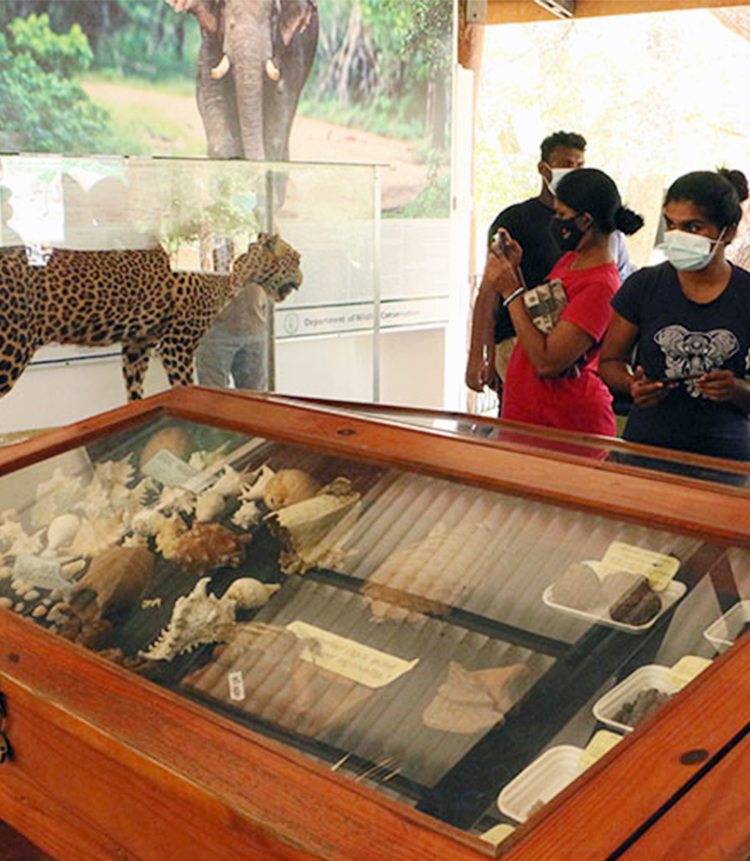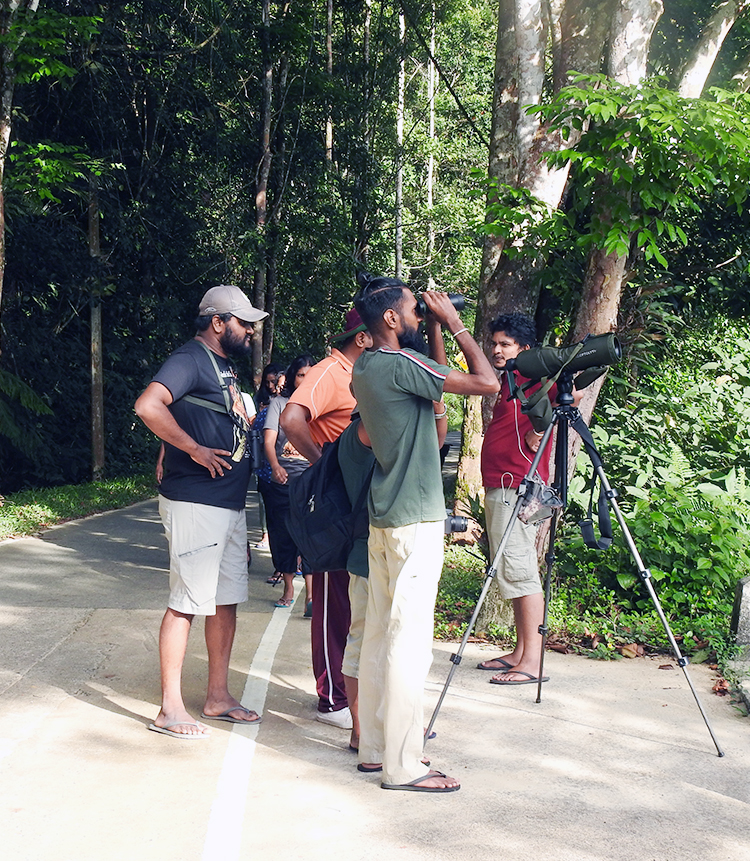Diploma in Palaeobiodiversity
The systematic study of all fossil animal/plant groups with special focus on palaeoenvironmental investigations; palaeoecosystems and climate changes in earth’s history; environment organism interaction; comparison of modern and ancient sedimentary environments; palaeoecology and palaeobiogeography are incorporated into ‘Palaeobiodiversity’. Archaeological research conducted so far has revealed the evidence of artefacts, fossils and subfossils of flora and fauna. These fossils can be categorised according to the geological time scale. Similarly, cultural, religious, social and economic aspects related to archaeology should also be considered in addition to the biological aspects for a holistic approach of conservation and sustainable use of Palaeobiodiversity.
-
Duration: 12 Months
-
Medium: English and Sinhala
-
Number of Credits: 30 credits
-
Lecturing: On Classroom & Distance Learning (Zoom)
-
Level: SLQF level 3 (Sri Lanka Qualification Framework), NVQL 5 (National Vocational Qualification Level)
General Introduction to Palaeobiodiversity and Related Fields.
Course Code: DPPB 0301
Course Content:
- Introduction to Palaeobiodiversity
- Concepts of Palaeobiodiversity
- Time Scales
- Plate Tectonic and Speciation (Flora & Fauna)
- Mass Extinction
- Palaeobiodiversity Research in Sri Lanka
- Literature Surveying and usage of Library
- Palaeobiodiversity sites in Sri Lanka
- Palaeobiodiversity Action Plan in Sri Lanka
- Recreating the Past
- Human Evolution
Learning Outcomes: Demonstrate communication skills of Palaeobiodiversity and Related Fields.
Method of Teaching and Learning: Lectures/ Tutorials/ Discussion Classes/ Presentation/ Field Lessons and Laboratory Studies.
Assessments: End of course written examination of MCQ and/ or structural Essays and/ or Assignments and/or presentations and/ or Activities.
Rocks, Minerals and Weathering Processes
Course Code: DPPB 0302
Course Content:
- Introduction to Rocks & Minerals, and their Formation
- Fossil Bearing Rocks
- Weathering and Earth Processes
- Major Geo Subdivisions of Sri Lanka
- Rocks and Mineral of Sri Lanka
- Gemology
- Fossil and Fossilization Processes
- Global Sea level changers & its Impact on Land, Flora & Fauna
- Sea Level Changing in Sri Lanka
- Vegetation types of Sri Lanka
- Shell-middens of Sri Lanka
- Survey and mapping in Archaeology
Learning Outcomes: Demonstrate communication skills of Rocks, Minerals and Weathering Processes
Method of Teaching and Learning: Lectures/ Tutorials/ Discussion Classes/ Presentation/ Field Lessons and Laboratory Studies.
Assessments: End of course written examination of MCQ and/ or structural Essays and/ or Assignments and/or presentations and/ or Activities.
Palaeontology and Living fossils
Course Code: DPPB 0303
Course Content:
- Biogeographical Zone of the World
- Biogeography in Asia & Animal Migratory Routes, Living Fossils
- Biogeography in Sri Lanka – Plants, Snails, Birds
- Biogeography in Sri Lanka – Amphibian, Reptile, Fish
- Biogeography in Sri Lanka – Mammals
- General Introduction to Palaeontology
- Types of Fossils by Era
- Jurassic Period of Sri Lanka & Classification of Jurassic Fossils
- Miocene of Sri Lanka & Classification of Miocene Fossils
- Pleistocene of Sri Lanka & Classification of Pleistocene Fossils
- Fossil Collections and curations
- Fossil Displaying and Museums
Learning Outcomes: Demonstrate communication skills of Palaeontology and Living fossils
Method of Teaching and Learning: Lectures/ Tutorials/ Discussion Classes/ Presentation/ Field Lessons and Laboratory Studies.
Assessments: End of course written examination of MCQ and/ or structural Essays and/ or Assignments and/or presentations and/ or Activities.
Palaeohuman Diversity and Cultural Evolution
Course Code: DPPB 0304
Course Content:
- General Introduction to Prehistory in Sri Lanka
- Concept & Evolution of Culture
- Asian Tribal people & Their Culture
- Stone tool tradition (Global)
- Sri Lanka Stone tool Variation
- Bone Tool tradition
- Zooarchaeology
- Zooarchaeological Interpretations of cave sites in Sri Lanka
- Palaeobotany and plant Domestication
- Animal Domestication
- History of Art in Prehistoric world
- Ancient and Modern Art
- Settlement Archaeology in Sri Lanka
- Iron Technology in Sri Lanka
- Ornaments and Rituals in Prehistoric Sri Lanka
- The Legends of Nittawo
Learning Outcomes: Demonstrate communication skills of Palaeohuman Diversity and Cultural Evolution
Method of Teaching and Learning: Lectures/ Tutorials/ Discussion Classes/ Presentation/ Field Lessons and Laboratory Studies.
Assessments: End of course written examination of MCQ and/ or structural Essays and/ or Assignments and/or Presentation and/ or Activity.
Tourism and Palaeobiodiversity
Course Code: DPPB 0305
- Definition of tourism, The Nature of tourism, The component of tourism
- Legislation and ordinance of tourism in Sri Lanka
- Palaeobiodiversity & Eco tourism in Sri Lanka
- New Trends in Palaeo tourism
- Potential of Palaeobiodiversity tourism in Sri Lanka
- Palaeobiodiversity and Cave tourism
- Nature tourism in Archaeology
- Heritage management of Palaeobiodiversity sites.
- Palaeobiodiversity & Law
- Environmental law in Sri Lanka
Learning Outcomes: Demonstrate communication skills of Tourism and Palaeobiodiversity
Course Content:
Method of Teaching and Learning: Lectures/ Tutorials/ Discussion Classes/ Presentation/ Field Lessons and Laboratory Studies.
Assessments: End of course written examination of MCQ and/ or structural Essays and/ or Assignments and/or Presentation and/ or Activity.
Laboratory Studies
Course Code: DPPB 0306
Course Content:
- Identification of Rocks
- Jurassic period of Sri Lanka & Classification of Jurassic fossils
- Miocene period of Sri Lanka & Classification of Miocene fossils
- Pleistocene period of Sri Lanka & Classification of Pleistocene fossils
- Identification of Stone tools
- Identification of Bone tools
- Laboratory Studies (Zooarchaeology)
- Fish remains
- Snails
- Bird bones & Reptiles Bones
- Mammals
- Human & Primates
- Storage methods – Cleaning, Labeling, Preserving of Faunal materials
- Technical Drawings
- Bone measuring techniques
Learning Outcomes: Demonstrate communication skills of Laboratory Studies
Method of Teaching and Learning: Lectures/ Tutorials/ Discussion Classes/ Presentation/ Field Lessons and Laboratory Studies.
Assessments: End of course written examination of MCQ and/ or structural Essays and/ or Assignments and/or practical test and/or Presentation and/ or Activity.
Field Studies
Learning Outcomes: Obtain training for students to apply the theoretical knowledge gained, in a practical context.
Course Content: Field visits and training, workshops.
Methods of Teaching and Learning: Lectures/ Tutorials/Discussion Classes/ Presentations/ Field Lessons/ Practical Studies/ Sites visits/Assist the students for an independent investigation of interest subject areas.
Assessments: End of the course submits the report to the Course Coordinator.
The applications can be obtained from the Administration office of the PGIAR
Duly completed applications should be sent to:
The Assistant Registrar (Academic),
Post Graduate Institute of Archaeology
407, Bauddhaloka Mawatha,
Colombo 07.
Please indicate “DIPLOMA IN PALAEOBIODIVERSITY” on the top left-hand corner of the envelope.
Online application
|
Registration fee |
Rs. 1500 |
|
Total Course Fee |
Rs. 50,000 |

